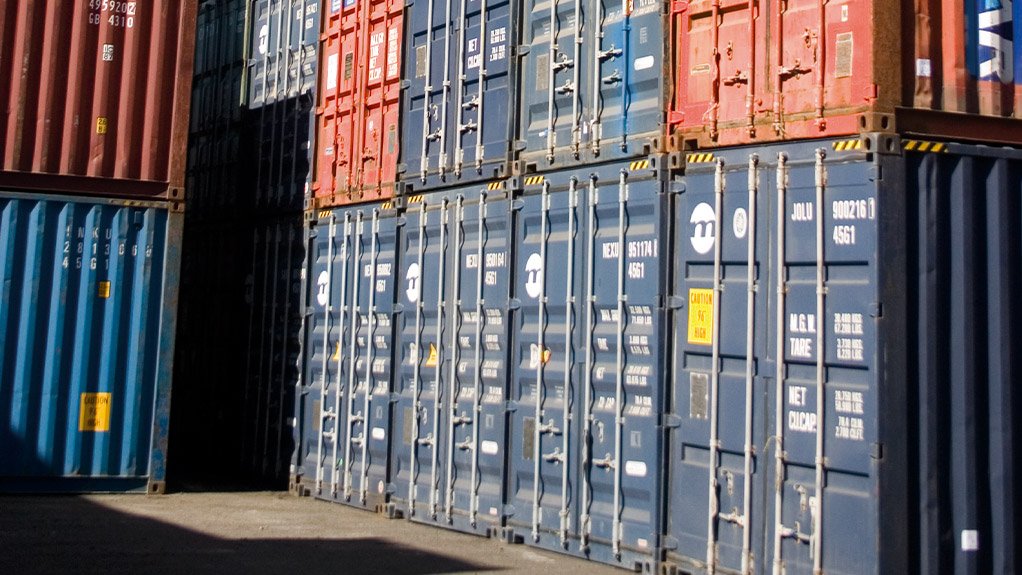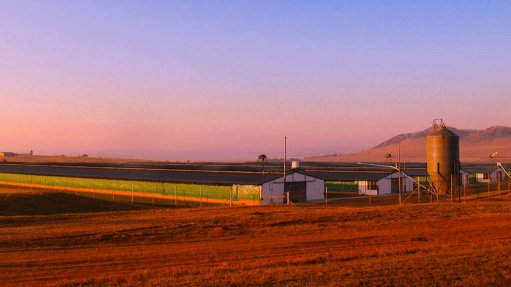Tracit recommends govt establish an Interagency Anti-Illicit Trade Coordinator
Global independent private organisation the Transnational Alliance to Combat Illicit Trade (Tracit) has published a report on illicit trade activity in South Africa, with recommendations on how the country can increase its efforts to curb the problem.
For South Africa to achieve its critical development objectives, it must effectively tackle what is a pervasive and complex problem of illicit trade that undermines and corrodes the entire economy, Business Unity South Africa (Busa) states, in hosting the launch of the report on behalf of Tracit.
To achieve this will require targeted and coordinated initiatives, interventions and programmes by government, business, labour, communities and civil society at large.
Illicit trade operates on multiple fronts, including alcohol, wildlife, cigarettes, mining, fishing, counterfeit electronics, pharmaceuticals, food and apparel.
The South African Revenue Service (Sars) estimates that illicit trade costs the South African economy R100-billion every year, in the form of lost tax revenues.
In turn, Business Leadership South Africa estimates that the country loses about R250-million a day, while intergovernmental body Organisation for Economic Cooperation and Development (OECD) says the country likely loses upwards of R60-billion a year.
National government has been clamping down on the negative impacts of illicit trade and illicit financial flows, including through additional budget allocations to the South African Police Service (Saps).
Saps is expected to receive an additional R7.8-billion over the next three years to recruit and train 5 000 new officers every year.
The National Prosecuting Authority (NPA) will also receive an additional R1.3-billion to appoint 120 more employees and hire external experts for complex cases, particularly financial crimes.
Earlier this year, during his Budget speech, Finance Minister Enoch Godongwana announced R3.3-billion had been reallocated to the Border Management Agency, which started operating in April. The entity will manage all ports of entry in the country and act against the importation of illicit goods into South Africa.
Encouragingly, Busa reports, government recovered R8.2-billion in revenue from criminal and illicit economic activities in the 2022/23 financial year through a number of successful cases against organised crime, which is an increase of 331% compared with the prior year.
To better understand the regulatory environment and economic circumstances that enable illicit trade, Tracit, which is a global independent private sector initiative, commissioned the Economist Intelligence Unit to produce the Global Illicit Trade Environment Index.
Along with more than 80 other countries, South Africa was evaluated on policy, legal, regulatory, economic, trade, institutional and cultural indicators reflecting its structural capability to effectively protect against illicit trade.
South Africa’s scores are mixed, ranking forty-second out of 84 countries evaluated, with an overall score of 62 out of 100. This is just above the global average of 60, but still leaves South Africa in the bottom half of its peers in the Group of Twenty countries.
Notably, South Africa is ranked first among its Brics counterparts (Brazil, Russia, India and China).
REPORT FINDINGS
Tracit finds that inflationary pressures, high levels of unemployment, widespread corruption, sophisticated organised crime networks and lingering effects from Covid-19 have accelerated the illicit economy.
Tracit director-general Jeffrey Hardy says in a statement that the Covid-19 pandemic provided wide opportunities for illicit traders to adjust and expand their operations, during a time when lockdowns and bans disrupted legal markets and created shortages.
He says that, for South Africa to grow its economy, it must formulate policies and implement programmes that deter and preclude illicit traders from consolidating its roots in the post-pandemic economy.
One of the key priorities emerging from the Tracit report is the need for improved governance and coordination, especially between law enforcement agencies, as well as stronger criminal penalties and a ramp-up in the capabilities of enforcement agencies.
A major recommendation coming from the report is the appointment of an Interagency Anti-Illicit Trade Coordinator.
The report makes clear that given the pervasive nature of the illicit economy, government alone cannot tackle the problem and that success requires the involvement and commitment of a broad range of key sectors and stakeholders.
Tracit senior policy adviser Estaban Giudici points out that South Africa is not known for effective governance, and has limited resources to spend. He adds the country also has no overarching anti-illicit trade framework, which, National Treasury confirms, is in the works.
Treasury adds it is working with the OECD to consult various agencies including the South African Reserve Bank and Sars on what a new piece of anti-illicit trade policy should contain to increase prosecutions of illicit trade crimes.
Giudici says financing of organised crime is becoming increasingly prevalent in South Africa, which is another reason why the country is currently greylisted.
Precious metals miner Sibanye-Stillwater executive VP and group protection services head Nash Lutchman explains the disparity in terms of economic equality in South Africa makes the community a breeding ground for organised crime to prosper.
He says society and business owners are desperate to save money or to make money, while the criminal justice system is not geared to deal effectively with illicit activity.
He highlights the importance of creating a national resistance to illicit trade.
Saps' Directorate for Priority Crime Investigation provincial head Major General Ebrahim Kadwa says law enforcement agencies need to enhance their analytical capability, particularly the NPA and the Independent Police Investigative Directorate. “These entities should be able to go after Ministers,” Kadwa states.
He also stresses the importance of building trust in the police service, which is something many citizens and businesses do not have.
Comments
Press Office
Announcements
What's On
Subscribe to improve your user experience...
Option 1 (equivalent of R125 a month):
Receive a weekly copy of Creamer Media's Engineering News & Mining Weekly magazine
(print copy for those in South Africa and e-magazine for those outside of South Africa)
Receive daily email newsletters
Access to full search results
Access archive of magazine back copies
Access to Projects in Progress
Access to ONE Research Report of your choice in PDF format
Option 2 (equivalent of R375 a month):
All benefits from Option 1
PLUS
Access to Creamer Media's Research Channel Africa for ALL Research Reports, in PDF format, on various industrial and mining sectors
including Electricity; Water; Energy Transition; Hydrogen; Roads, Rail and Ports; Coal; Gold; Platinum; Battery Metals; etc.
Already a subscriber?
Forgotten your password?
Receive weekly copy of Creamer Media's Engineering News & Mining Weekly magazine (print copy for those in South Africa and e-magazine for those outside of South Africa)
➕
Recieve daily email newsletters
➕
Access to full search results
➕
Access archive of magazine back copies
➕
Access to Projects in Progress
➕
Access to ONE Research Report of your choice in PDF format
RESEARCH CHANNEL AFRICA
R4500 (equivalent of R375 a month)
SUBSCRIBEAll benefits from Option 1
➕
Access to Creamer Media's Research Channel Africa for ALL Research Reports on various industrial and mining sectors, in PDF format, including on:
Electricity
➕
Water
➕
Energy Transition
➕
Hydrogen
➕
Roads, Rail and Ports
➕
Coal
➕
Gold
➕
Platinum
➕
Battery Metals
➕
etc.
Receive all benefits from Option 1 or Option 2 delivered to numerous people at your company
➕
Multiple User names and Passwords for simultaneous log-ins
➕
Intranet integration access to all in your organisation





















